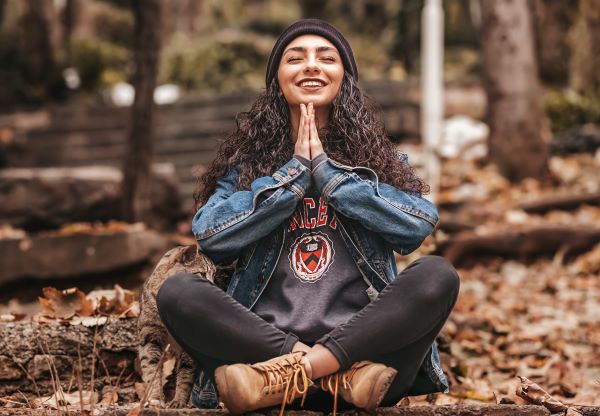A Sense of Belonging or Coming Home

In the last few years so much has shifted. Even as we get used to a new normal, it changes. How do we rest or find a sense of belonging amid such uncertainty? Accepting impermanence becomes a daily thing as most aspects of life that we took for granted no longer are givens. How do feel that sense of coming home with so many unknowns?
Along with the pandemic there is an awakening to the crueler side of humanity that exists in war, racial injustice and the rise in domestic violence amid an opioid crisis. Happiness is still important. In fact, we can’t create the world we want to live in without it. I know a person who escaped Syria as a refugee. He happens to be one of the most joyful people I know. So how do we do this?
Basic Goodness
Trust is a practice not a given. Those who experience tremendous trauma can turn away from life and stop trusting the basic goodness of humanity. They have every right to and yet I witness these people do the opposite over and over again. It’s not always entirely messy either. Sometimes these devastating events bring out the most remarkable appreciation for what is and resiliency.
Basic goodness is the understanding that at our core humans want to do what is right and good. We want to be of service and contribute to the world. Anchoring ourselves in basic goodness helps us trust again. It does not happen quickly but one step at a time we can come home to ourselves and a sense of belonging. It is when we are running from ourselves that we are likely to create more harm. This is why this simple step can be so powerful.
The Power of Being With
By naming emotions, we allow ourselves to be with what is. By feeling what is, we actually allow it to change even if it’s just for a moment. The situation may not be resolved but we have found a sense of relief as the emotion passes. Recently a dear friend lost her brother. I continue to hold them both as I go through my days. The practice of being with what is difficult also allows in the beauty of the connection they had as children. I appreciate my own siblings more and relish in joy of being a parent knowing that many parents have lost children to addiction in recent years. I grieve with them and perhaps this lightens their burden just a little.
Addiction is one way people deal with pain that is utterly overwhelming. By allowing the pain, we allow life. When we do this it can seem unbearable but then it changes. On the other side are more options. Options to do things not because we are impulsively doing them but because we want to. Then we can actually enjoy them. This is how renunciation works. For example, it’s not the act of drinking coffee that is harmful but how we relate to it that can be. If I use coffee to speed through my morning which can cause interpersonal problems. If I use coffee to bring more attention to what I love and where I’m most needed it can be a tool.
May All Beings Experience Freedom
May I love myself just as I am. Can I love myself right now just as I am? Even just the tiniest bit?
May all beings be safe and protected. Can I imagine a world where people are safe from harm? How can I help create this?
May you find ease in an uncertain world. Can I help you find ease in this uncertain time?
These are statements of loving kindness that can help us navigate our internal world. They are contemplations that assist us in seeing our relationships with others who are going through difficulty. In the same way that trust is a practice, these aspirations show us where we get stuck and shut down. These statements help us turn towards what is uncomfortable. When we are willing to do so we experience the freedom and fearlessness. We can also develop a deeper sense of belonging and more joy. We are able to relate to people independent of what they are going through and just see them in their humanity.
Related Posts
 Wonder Creates Health and Resiliency
Wonder Creates Health and Resiliency





